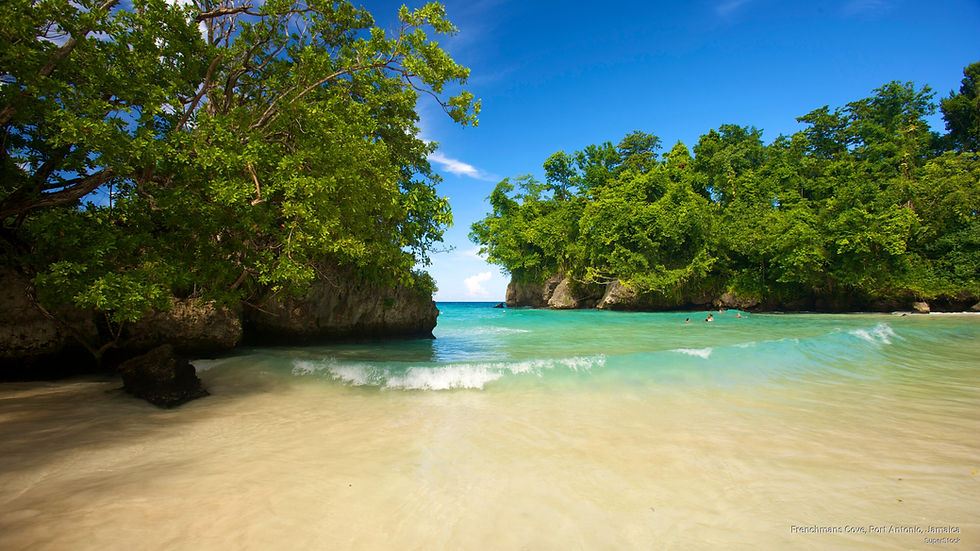The name Jamaica is derived from the word 'xaymaca', which means ‘land of the springs’ in the language of the native Taino population. For several millennia, two main ethnic groups - the Taíno and the Arawak, populated the island. In the early 16th century, following the arrival of Christopher Columbus, the island fell under Spanish rule, and both indigenous ethnic groups were eventually exterminated, while the population of African slaves, brought in by the colonial rulers, increased.
In 1655, the island was seized by the British, forcibly evicting the Spanish colonial population and establishing a plantation economy based on the export cocoa, and coffee, and becoming one of the world’s leading exporters of sugar. Despite much resistance by plantation-owners, who claimed that the slaves were content in their current positions, Jamaica formally abolished slavery in 1838, freeing over 250,000 slaves, many of whom went on to own small farms. Jamaica went on to gradually become independent from Britain.
In 1958, it joined the other British colonies in the Caribbean to form the Federation of the West Indies, gaining full independence upon leaving the Federation in 1962. Following independence, economic conditions on the island deteriorated sharply, with most government investment directed at natural resource and tourism industries. Conditions in urban areas were especially poor, with rising threats of drug and gang-related violence; problems that continue to plague the island today. Modern Jamaica is both a parliamentary democracy, and a constitutional monarchy, being part of the Commonwealth. Its economy today is largely based in the service industry, with tourism still remaining a significant source of income.








